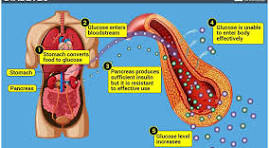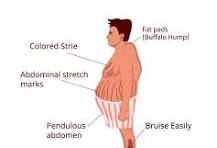INTRODUCTION:
Health is wealth. One sickness can wreck a man’s entire financial estate,
leaving him and families in distress. While modern
medicine has made remarkable strides in diagnosing and treating diseases, many
health conditions continue to defy medical solutions, pushing us to explore
alternative approaches.
Natural remedies have been a cornerstone of healing for centuries, long before
the advent of modern pharmaceuticals. Across cultures and civilizations, people
have relied on nature’s gifts—herbs, roots, fruits, and holistic practices—to
restore health and vitality. While this encyclopedia does not seek to undermine
the importance of medical science, it aims to complement it by shedding light
on time-tested natural solutions.
NATURAL REMEDIES FOR BAROTRAUMA(Ear Pressure)
Barotrauma, commonly known as ear pressure, is a condition caused
by imbalances in air or water pressure affecting the middle ear. It is
most frequently experienced during altitude changes in airplanes,
mountain travel, or underwater diving. This pressure discrepancy
affects the Eustachian tube, a small canal that connects the middle ear
to the back of the nose and throat, which helps regulate pressure. In
mild cases, natural remedies can support the body’s ability to restore
balance and reduce discomfort. Below are herbs and home-based
techniques that can assist in alleviating minor symptoms of ear
barotrauma:
1. Chewing Gum
Chewing gum is one of the simplest ways to activate swallowing
reflexes that help open the Eustachian tube.
How it works: Encourages jaw movement and frequent
swallowing, which promotes pressure equalization in the ear.
Usage: Chew sugar-free gum during flights, especially during
take-off and landing, or during altitude changes.
2. Valerian Root
Valerian root has gentle sedative effects and muscle-relaxing
properties, which can reduce tension around the Eustachian tube.
Preparation: Steep 1 teaspoon of dried valerian root in hot water
for 10–15 minutes, strain, and drink as tea.
Usage: Drink before traveling or when symptoms appear. Use
only under guidance, especially if you’re taking sedatives or
antidepressants.
3. Ginger
Ginger is well known for its anti-inflammatory and soothing
properties, which may reduce inflammation around the ear canal
and nasal passages.
Preparation: Simmer fresh slices of ginger in hot water for 10–
15 minutes.
Usage: Drink the tea before travel or during symptoms. Can also
be taken as capsules with medical supervision.
4. Olive Oil
Warm olive oil can help soften compacted earwax that may
contribute to pressure or muffled hearing.
Preparation: Warm a small quantity of olive oil slightly (not hot)
and apply 2–3 drops into the ear using a clean dropper.
Usage: Lie on your side for several minutes after application to
allow absorption, then tilt the head to let it drain.
5. Steam Inhalation
Steam inhalation helps loosen congestion and reduce blockages
in the Eustachian tube, especially when symptoms are due to
colds or sinus issues.
Preparation: Pour boiling water into a bowl and lean over it with
a towel over your head to trap the steam.
Usage: Inhale for 5–10 minutes, once or twice daily during
symptoms.
6. Yawning and Swallowing
Simple physical maneuvers like yawning and swallowing can aid
in equalizing ear pressure during environmental pressure
changes.
How it works: These actions open the Eustachian tube, equalizing
air pressure between the middle ear and the environment.
Usage: Do them repeatedly during airplane ascents and descents
or when diving.
7. Hydration
Proper hydration supports mucous membrane health, helping
prevent congestion or blockage in the nasal passages and ears.
Usage: Drink water frequently, especially before and during air
travel. Avoid alcohol and caffeine, which can dehydrate the body.
8. Warm Compress
A warm compress can provide comfort and help relax the muscles
around the ear, which may ease pressure buildup.
Preparation: Soak a clean cloth in warm water, wring it out, and
apply it gently over the affected ear.
Usage: Use for 10–15 minutes several times a day as needed.
Key Considerations
While these natural remedies are helpful for easing mild ear pressure
due to travel or minor congestion, they should not replace medical
intervention in cases of severe barotrauma. Signs of serious
complications include persistent pain, hearing loss, ringing in the ears,
or discharge, which may indicate a ruptured eardrum or middle ear
infection.
In such cases, immediate consultation with a healthcare
provider is necessary. People with chronic sinusitis, ear infections, or
nasal allergies should also discuss prevention strategies with a
physician. Herbs like valerian and ginger, though natural, can interact
with medications or cause side effects if overused. Always ensure
correct usage and consult a qualified professional before beginning any
new treatment, especially if you are on medications or have existing
medical conditions.



